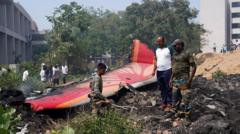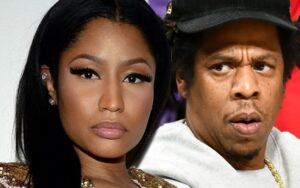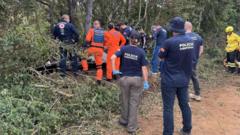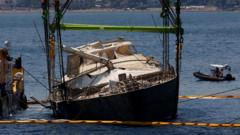The Gambian government has initiated an inquiry into the controversial sale of assets belonging to former President Yahya Jammeh, following accusations of misconduct and a lack of transparency. President Barrow has urged calm while promising that the findings will be made public.
Gambia Launches Investigation into Sales of Former Leader's Seized Assets

Gambia Launches Investigation into Sales of Former Leader's Seized Assets
Amid public outcry, President Adama Barrow vows transparency while assessing alleged misconduct in the sale of luxury items from ex-leader Yahya Jammeh.
The Gambian government is currently investigating the sale of assets seized from former President Yahya Jammeh, amid growing public dissatisfaction regarding the transparency of the process. These assets, which include luxury cars, livestock, and various other items, were sold while an official investigation into Jammeh's ill-gotten wealth was still ongoing.
The situation escalated following a report by the local newspaper Republic, which raised concerns about alleged irregularities and potential conflicts of interest among senior officials involved in the sales. The findings sparked protests in the capital, Banjul, led largely by the youth. In response to mounting pressure, President Adama Barrow addressed the nation, assuring citizens of "full transparency" in the ongoing probe and underscoring that these assets rightfully belong to the Gambian people.
Yahya Jammeh, who led The Gambia through a 22-year regime after a coup in 1994, is accused of extensive corruption and human rights violations. He is alleged to have stolen approximately $360 million during his presidency. The Janneh Commission, established by President Barrow in 2017 to investigate corruption, has previously recommended the recovery of Jammeh's assets linked to his illicit activities.
Despite the government's move to oversee the return of these assets and the development of a list detailing sold items, key luxury items, such as Jammeh's Rolls Royce and Bentley, were notably absent, raising further suspicions among the public. The government contended that the sales adhered to legal protocols and were in the public interest. However, skepticism remains, particularly among opposition members who contend that parliamentary inquiries lack independence and integrity.
Yayah Sanyang, an opposition MP, has called for an independent investigation, emphasizing that the ruling party's dominance within the parliament could skew accountability efforts. Human rights organizations, including the Edward Francis Small Center for Rights and Justice, are also vocal in demanding that all sales be frozen until a thorough investigation is conducted.
As the inquiry unfolds, Barrow reassured that findings from both parliamentary and National Audit Office inquiries would be released to the public, and all necessary actions would be taken against those found culpable. Meanwhile, some Gambians remain skeptical about the government's commitment to genuine accountability in light of past leadership failures.
This investigation underscores the ongoing struggle for transparency and justice in a nation grappling with the legacy of Jammeh's long and controversial rule.






















